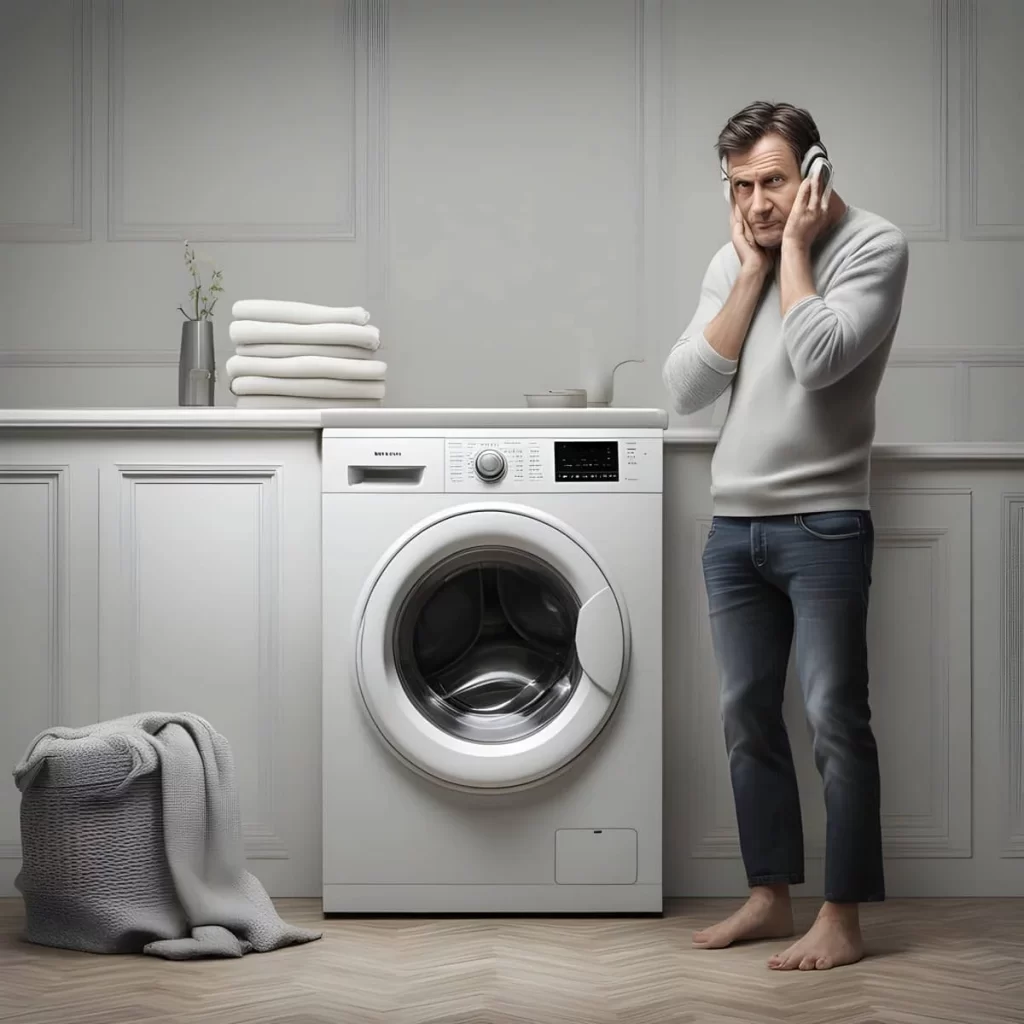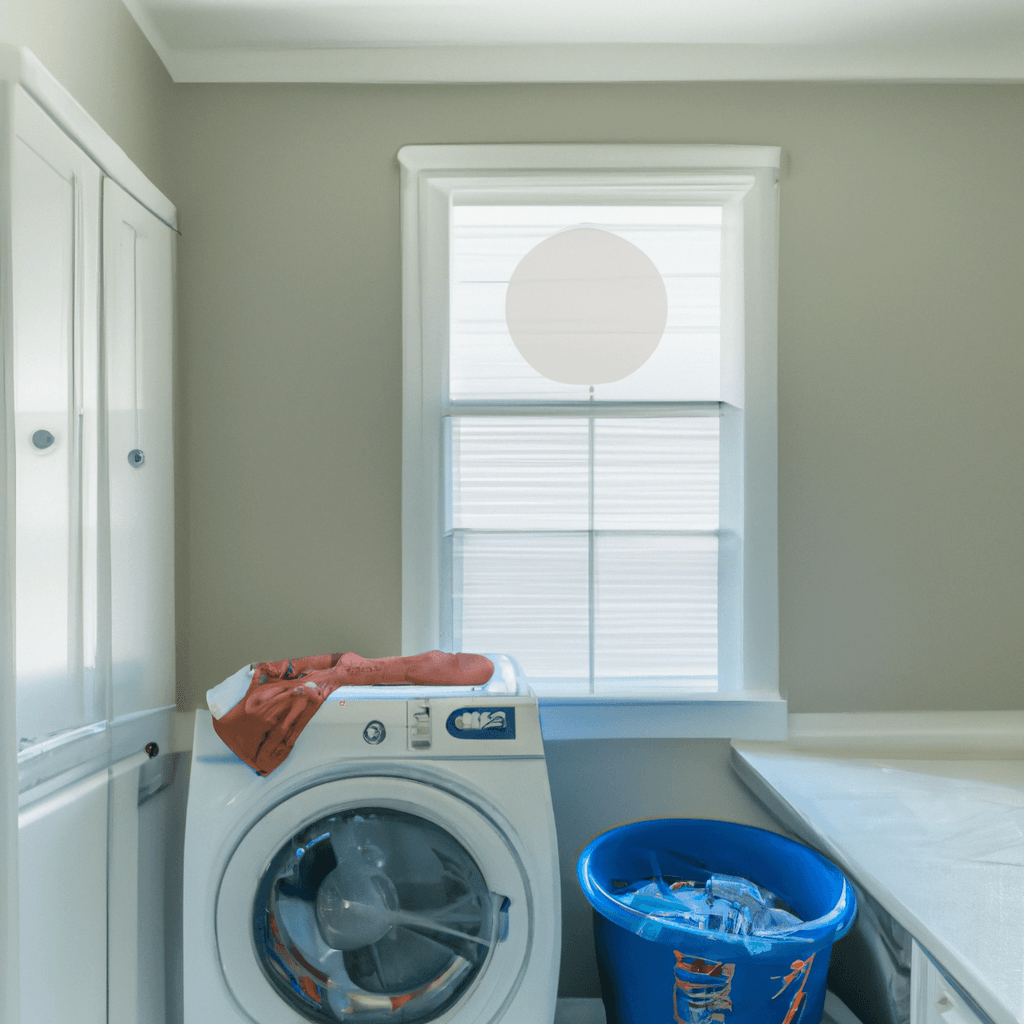Why Your Washing Machine Makes Loud Noises When Spinning
Introduction:
A washing machine is an essential appliance in most households, helping us manage our laundry efficiently. However, a common issue many homeowners face is that their washing machine makes loud noise when spinning. This disturbance can be alarming and may indicate an underlying problem. In this article, we will explore various reasons why your washing machine might be making these loud noises during the spin cycle, as well as potential solutions and preventive measures.
Common Reasons for Loud Noises During the Spin Cycle
Before diving into the specifics, it’s crucial to identify the reasons behind those annoying sounds. A washing machine can make various noises, such as banging, clanging, grinding, or high-pitched squeals. Each of these sounds can signify different issues.
Imbalanced Loads
One of the most frequent reasons for a noisy washing machine during the spin cycle is an imbalanced load. When washing machines are overloaded or underloaded, the drum can become unbalanced.
How to Identify an Imbalanced Load
- Listen Carefully: If you notice the noise is louder than usual, your load may not be evenly distributed.
- Check the Drum: Open the lid and see if the clothes are clumped together on one side.
Solutions
- Redistribute Clothes: Pause the cycle and redistribute the clothes evenly.
- Adjust Load Size: Make sure your loads are appropriate in size. If you tend to overload the machine frequently, consider washing smaller batches.
Worn or Damaged Bearings
Another significant reason for the loud noises could be worn or damaged bearings. Bearings help the drum rotate smoothly, and if they wear out, you may hear a rumbling or grinding sound.
Signs of Worn Bearings
- Drum Movement: The drum may wobble or move excessively when spinning.
- Noise Type: You may hear a grinding or screeching sound when the machine is running.
Solutions
- Inspect the Bearings: If you’re comfortable, check the bearings yourself. They might need to be replaced.
- Consult a Professional: If you’re unsure, a plumber or appliance repair technician can accurately diagnose and fix the issue.
Damaged Drive Belt
A damaged or loose drive belt can also lead to noise. The drive belt connects the motor and the drum; if it’s worn or frayed, it will produce a loud squealing or thumping noise.
Identifying a Faulty Drive Belt
- Sound Changes: If the sound changes with the spin speed, the drive belt might be at fault.
- Visual Inspection: Sometimes, you can visually inspect the belt for signs of wear.
Solutions
- Adjust or Replace: Depending on the severity of wear, you might only need to adjust it, or complete replacement may be necessary.
- Call for Help: If you’re not experienced in mechanical repairs, it’s advisable to hire a technician.
Faulty Shock Absorbers
Shock absorbers do exactly what their name suggests: they absorb the shocks that occur during a washing machine’s operation. If these components wear out, they can create a loud thumping or banging noise.
Recognizing Shock Absorber Issues
- Bouncing Drum: If you notice the drum bouncing excessively, it could indicate a shock absorber issue.
- Visible Damage: Check for cracks or wear on the shock absorbers.
Solutions
- Replace: Shock absorbers can typically be replaced easily, but you must ensure you get the correct parts for your model.
- Hire a Pro: Again, if you’re not handy, it’s best to let a professional handle it.
Clogged Drainage System
A clogged drainage system can also contribute to loud noises. When water fails to drain properly, it can lead to unusual sounds as the machine struggles to complete its cycle.
Signs of Clogging
- Slow Draining: If you notice that the water is taking a long time to drain, you might have clogging.
- Unusual Sounds: Gurgling or bubbling sounds during the spin cycle are telltale signs.
Solutions
- Check the Drain Hose: Ensure that the drain hose is not kinked or clogged. Clean it if necessary.
- Inspect the Pump: If you’re still having issues, check the drain pump for blockages.
Old Age and Wear
Sometimes, the reason your washing machine makes loud noise when spinning is simply due to its age. Over time, parts wear out, leading to decreased efficiency and increased noise.
Recognizing Wear and Tear
- General Performance: If your washing machine has been noisy for a while and doesn’t clean clothes effectively, it may be aging.
- Multiple Issues: If you’re encountering multiple issues simultaneously, it’s a sign of wear.
Solutions
- Consider Repair: Sometimes, repairing individual components can extend the life of your washing machine.
- Plan for Replacement: However, in some cases, it may be more cost-effective to replace the machine entirely if it’s very old.
Additional Tips to Prevent Noisy Washing Machines
Aside from addressing the common causes of noise, here are some additional tips to help prevent issues from arising in the first place.
Regular Maintenance
Regular inspections can save you from much larger problems down the line.
- Balance Load: Always ensure that loads are balanced.
- Clean Filters: Periodically check and clean the filters to maintain optimal performance.
Check the Level
An unlevel washing machine can lead to excessive vibrations and noise.
- Use a Leveling Tool: Make sure your machine is level on the floor.
- Adjust Feet: Most washing machines come with adjustable feet to help with this.
Avoid Overloading
Overloading isn’t just a direct cause of noise; it can lead to premature wear on the machine.
- Follow Guidelines: Check the user manual for guidelines on load capacity.
- Sort Your Laundry: Separating heavy and light items can help avoid overloading.
Inspect Hoses and Connections
Make sure that all connections are secure. Loose hoses can lead to vibrations and, subsequently, noise.
- Tighten Hose Connections: Regularly check hoses to ensure they’re secure.
- Check for Cracks: Look for any signs of wear that could lead to leaks or excess noise.
Be Mindful of Drum Movement
Too much movement in the drum is often a warning sign of a problem.
- Watch for Excessive Wobble: If you notice abnormal movement, it’s time to investigate.
- Turn Off When Necessary: If you hear loud noises, switch off the machine and inspect before continuing.
Seeking Professional Help
If, after all your efforts, your washing machine continues to make loud noise when spinning, it might be time to seek professional help.
When to Call a Technician
If you have identified multiple issues or the noise persists despite your efforts, a qualified technician can provide an expert assessment. This is especially true for issues involving electrical components or internal mechanics that may not be easily accessible.
Choosing a Suitable Service
- Check Reviews: Look for reliable technicians or repair services in your area, considering customer reviews.
- Warranty Status: If your appliance is still under warranty, contact the manufacturer for guidance.
 Costs Associated with Repairs
Costs Associated with Repairs
Repairs can differ significantly depending on the issue and the service provider. Below are estimated costs for various repairs:
DIY Costs
- Drive Belt Replacement: If you’re doing it yourself, the cost for a new belt can range from $10 to $50, depending on the brand and model.
- Tools: Ensure you have the right tools. You might need a basic tool kit, which could range from $20 to $50.
Professional Costs
- Basic Diagnosis Fee: Many service providers charge a diagnostic fee, generally ranging from $50 to $100.
- Motor Replacement: This can cost anywhere from $200 to $500, including parts and labor.
- Drum Bearing Replacement: This complex repair might cost between $150 and $350.
- Overall Repair Costs: Depending on the issues and necessary repairs, total costs can land somewhere between $150 and $800.
Conclusion
In conclusion, a washing machine makes loud noise when spinning for various reasons, ranging from imbalanced loads to worn-out bearings, damaged drive belts, and other mechanical problems. Understanding these issues can help you take preventive measures or seek timely repairs. Regular maintenance, mindful usage, and professional help when necessary can significantly extend the life of your washing machine and save you from disruptive noises, bringing you back to a peaceful laundry experience.



